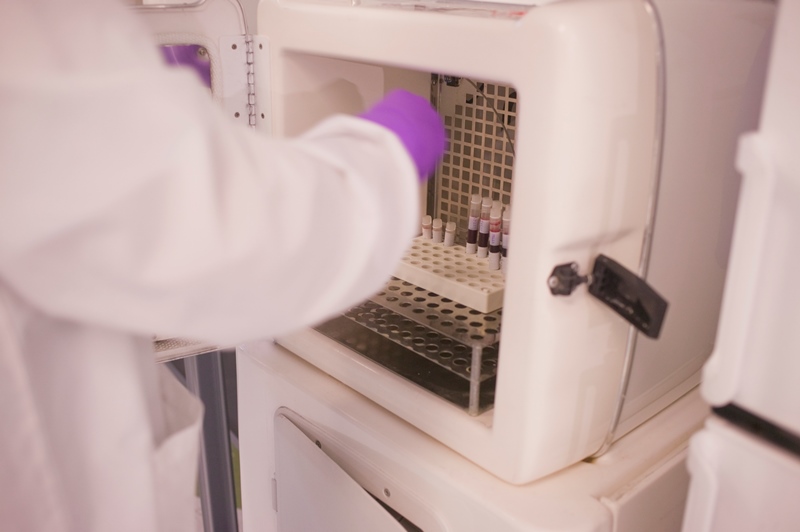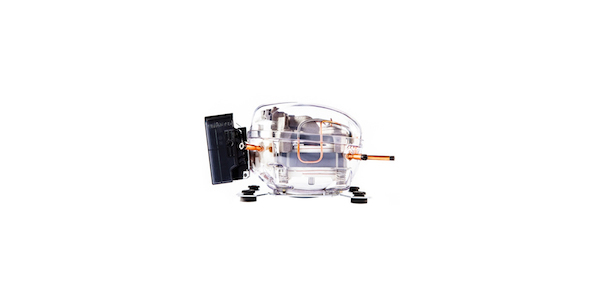[gravata]There are great opportunities for specialized service providers for this segment. [/gravata]
Hospitals, clinics, laboratories and other institutions rely on maintaining appropriate temperatures, to ensure proper preservation of sensitive materials used in their activities.

Prof. Valéria C. de Oliveira – “Vaccine preservation in Primary Health Units
show significant flaws”
Properly preserving drugs, vaccines, serum, blood, tissues, organs for transplant and many other items is necessary to ensure the best conditions for treatments and preventive activities in the medical field. Refrigeration and climate control systems and equipment play a fundamental role in this task. This opens up great opportunities for those working in the area but requires knowledge and great responsibility.
The health care sector has grown a lot in recent years and the tendency is that it’ll develop even further. Technology has advanced rapidly in this area, allowing it to offer new treatments and improve the living conditions of millions of people.
The complexity of the services offered in specialized hospitals and clinics is associated with the use of increasingly more modern equipment and techniques, as well as the creation of new medicines.
In many cases, refrigeration and climate control have become indispensable resources so that procedures are carried out and so that the most diverse materials are maintained in ideal conditions. There is therefore a strong demand for equipment maintenance services that provide adequate temperatures to different environments and products used in health care institutions.
There are, for example, various types of drugs that need to be refrigerated. The same applies to vaccines, serums, blood bags, as well as tissues and organs for transplant.
When these products deteriorate because they weren’t properly stored, the financial loss is high due to their high cost. In addition, their lack can lead to serious consequences for the health of those who need to receive them.

For blood banks, relying on reliable refrigeration systems is essential
A manual developed by the Department of Epidemiological Inspection from the Ministry of Health, detailing the care of refrigeration equipment maintenance, clearly shows the existing concern with the subject: “It’s essential that timely maintenance and/or repair services are carried out in order to prevent that some equipment become defective and/or fail in their operation, resulting in expose of immunobiological products (vaccines) to temperatures outside the range recommended by the Program. Losing the vaccine because of an equipment defect and/or failure is considered a preventable loss, which is generally related to the lack of preventive/corrective equipment maintenance.”
Even though there are technical recommendations, many times they aren’t followed. In her doctoral thesis at the Ribeirão Preto College of Nursing, from the University of São Paulo, Professor Valéria Conceição de Oliveira revealed that vaccine preservation in Primary Health Units (PHU) has significant flaws that could jeopardize the effectiveness of immunization. One of the critical aspects is the predominant use of household refrigerators, which aren’t the ideal equipment for storing vaccines – which requires greater care and attention of the nursing team and exposes vaccines to the risk of temperature fluctuations.
According to Valéria, often preservation failures occur due to lack of knowledge of health professionals who work in these units. This opens up opportunities for well-prepared contractors, who can, in addition to doing equipment maintenance, guide users about the procedures that ensure the vaccines’ quality.
[box side=”alignright” color=”box-vermelho” pos=”vertical”]
In 2013 there were more than 5,300 hospitals in the country and each of them needs several refrigerators. In addition, primary health units totaled 32,500 nationwide.
[/box]
GROWING DEMAND
In Brazil and Latin America demand for general medical services has been growing. This is due to several factors:
- People’s life expectancy has increased;
- The proportion of elderly in the total population is growing;
- As a result of the above, cases of chronic diseases are more common;
- Average income rose, providing more resources for health care.
At the same time, as with other services, users’ requirement level regarding quality is growing and the trend is that it will grow even more (see Interview on page 4). This means that many opportunities will open up for those who wish to provide services to this segment and has technical expertise to attend it.
One example is that of refrigeration equipment manufacturers. In Brazil and Latin America in general there are now very few refrigeration equipment options developed specifically for the healthcare market. Most hospitals and clinics use solutions that were designed for another type of application, such as household refrigerators and some types of freezers.
This situation has to change, following what already happens in more developed countries, where there are companies specialized in producing refrigerators for use in the medical field that cater to differentiated requirements and incorporate countless devices, including temperature alarms, data registers and other.
The market is beginning to mature in Brazil, but the numbers are great: according to the survey Medical Demography, in 2013 there were more than 5,300 hospitals in the country, general and specialized. Each one of them needs many refrigerators, for varied uses.
In addition, primary health units totaled 32,500 throughout the country. Not counting the clinics (including dental) and other establishments which often need refrigeration equipment for their daily activities.
An example of the current potential can be seen with the Cold Network, created by the Department of Epidemiological Inspection (Ministry of Health). Its goal is to take care of receiving, storing, preserving, handling, distributing and transporting vaccines. The institution uses the following equipment in its structure:
- Positive and negative cold chambers;
- Refrigerated chests;
- Commercial Refrigerators (four or more doors);
- Household refrigerators with capacities from 280 liters;
- Gas household refrigerators;
- Photovoltaic refrigerators;
- Horizontal freezers;
- Air conditioners.
The analysis and research laboratories also use refrigeration equipment and must be taken into account by those who intend to seek out opportunities. There, samples, reagents and other materials, need to be kept within certain temperature ranges in order to properly fulfill their purpose. In some cases, the temperature range can reach -86oC. These are ultra low temperature freezers.
Not to be forgotten is making sure that climate control installations work properly, which are also essential in certain areas of hospitals and laboratories. Continuous cleaning and maintenance prevent contamination of environments that need full protection against micro-organisms and other infectious agents, such as operating rooms. In addition, remember that it’s necessary to control the temperature and relative humidity very well in places like these.
The market is very broad and can go beyond human medicine. Just think of veterinary clinics and hospitals, whose number is expanding rapidly: Brazil is currently the country with the second largest dog and cat population in the world.
In rural areas, there are other possibilities, with modernization in breeding animals, with the use of genetic resources that require, among other things, semen and embryo preservation in refrigerated equipment.
And you, are you aware of the opportunities in this market?
[box side=”alignright” color=”box-verde” pos=”horizontal”]
NEW DIRECTIONS IN MEDICINE OPEN OTHER FIELDS
Technological advances in medicine result in the constant creation of new specialties – and usually they use refrigeration in their activities. This is the case of assisted reproduction clinics, for those who have difficulty having children. Today there are dozens of them across the country, which need special equipment and care to preserve sperm, eggs and embryos at temperatures below -100°C.
In recent years, a new specialty has emerged from the research on the use of blood, umbilical cord tissue and tooth pulp stem cells. These cells need to be preserved under special conditions, so they can be used when needed. For this the cryopreservation process is used. Stored in their own bags, these materials are subjected to a gradual programmed freezing, reaching a final temperature of −200°C.
Refrigeration systems used for this specialty, also called cryogenics, are advanced but need constant monitoring and preventive maintenance. After all, loses, if they malfunction, are unrecoverable.
[/box]



